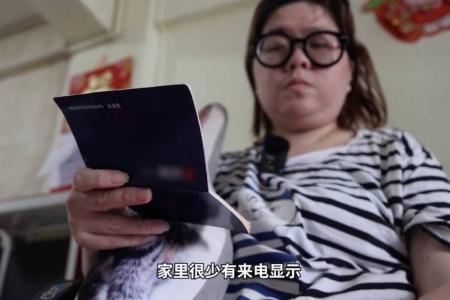Stroke victim loses father's $100k retirement fund to 'caring' scammers
They were master manipulators who knew just how to tug at her heartstrings and make her let go of her purse strings.
Posing as police and anti-corruption officers from China, they pretended to care for pandemic victims and for their intended victim, former Chinese-language editor You Mei Zhen, who had suffered a stroke in May last year, which left half her body paralysed.
They made her believe that her identity had been stolen in a Chinese criminal case involving 6.5 billion yuan (S$1.2 billion).
Ms You, who is from Singapore, ended up being scammed of $120,000, including $100,000 of her father's retirement savings.
She only discovered the missing funds about a month later, according to Lianhe Zaobao.
Sitting in a wheelchair, the 38-year-old talked about how she had received a phone call through her home's landline in late April this year.
The person on the other end claimed to be an employee from a bank in Shanghai, China.
The person also claimed that someone had used Ms You's identity to apply for credit cards, spending about 40,000 yuan to buy jade.
The person then transferred the call to a man who claimed to be a police officer in China.
He instructed Ms You to co-operate in investigations, emphasising that she must not reveal details of the case during the investigation period.
He contacted her a few days later, telling her that the suspect had been apprehended and that he had misappropriated about 65 billion yuan in "Covid-19 pandemic relief funds".
He said that the money had been transferred to fraudulent bank accounts set up using others' personal details, including Ms You's.
The man then shared several videos with her which allegedly showed people suffering or dying as a result of being unable to obtain subsidies from the pandemic fund.
"The police officer accurately stated my name and identity card number, which is why I was convinced," Ms You told Zaobao.
A woman named "Lu Xi" contacted her after that.
Lu claimed to be the deputy director of the anti-corruption bureau and stated that the deposits in Ms You's bank accounts had to be verified to ensure that they were not from stolen funds.
She instructed Ms You to transfer all deposits from other bank accounts to her United Overseas Bank (UOB) account, so that they could "notarise" the amount at one go.
Lu also told her to download several applications so that they could perform the notarisation process remotely through her mobile phone.
"Lu told me that she was suffering from stomach cancer, which happened to be the same disease that claimed the life of my mother," said Ms You.
"She also claimed to have a daughter who's about my age and was always caring towards me," she said, describing how the scammer had got her trust in the relationship.
"I never suspected her at all."
Believing Lu, Ms You, without informing her father, transferred the savings in their joint Industrial and Commercial Bank of China (ICBC) bank account to her UOB account.
"Lu told me that they would first transfer the money out for notarisation before returning it back to the account," she told Zaobao.
She "didn't think much of it" at the time as she was preparing to undergo retinal detachment surgery.
After the surgery, Ms You wanted to withdraw money to celebrate her father's 70th birthday. She visited a UOB bank branch on June 17 to update her passbook.
That was when she realised that over $120,000 had been transferred out of the account, leaving behind only about $700.
A bank officer told her that the funds had been transferred on three occasions between May 26 and May 29.
Ms You's father, who did not know the full story, helped to lodge a police report.
"I couldn't believe that I had been scammed and didn't tell my father the truth. He didn't know that $100,000 was from his CPF savings," she said.
A week later, however, her father discovered the missing funds while accessing his ICBC bank account. That was when Ms You finally told him the truth and the pair made another police report.
"The police told me that I'd been scammed and that those people did not exist. That was when the realisation hit me," she said.
She also realised that the applications she was instructed to download and the conversations with the "police officer" and Lu had been erased from her phone.
She noted that the scammers had utilised novel tactics by calling her landline instead of her mobile phone.
They also got her to transfer all deposits to one account as well as to download applications so they could secretly control her phone.
"I don't think I was scammed because I was stupid, it's really hard to guard against (these scammers)," she said.
Ms You hoped that her case can serve as a warning to others to always be on the alert so they won't become the next victim.
She told Zaobao that her father had planned to use his money to travel and enjoy his retirement, but is now feeling helpless.
"Of course he was angry but he tried to appear calm so I wouldn't feel so bad.
"He rationalised that the money would have been mine anyway after he's gone, so it's as though I just used it earlier."
She also said that her father's plans to retire had fallen through because of her stroke as she had to rely on his salary as a warehouse manager to survive.
"And now with such a large part of his savings gone, I feel extremely guilty."
When contacted by Shin Min Daily News, police confirmed that they had received a report on the case and investigations are ongoing.
Get The New Paper on your phone with the free TNP app. Download from the Apple App Store or Google Play Store now


